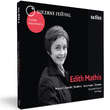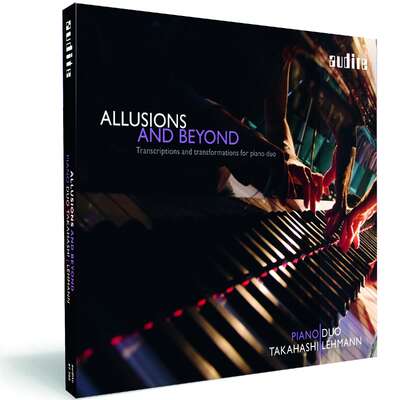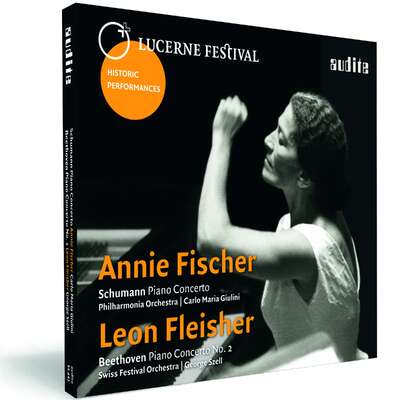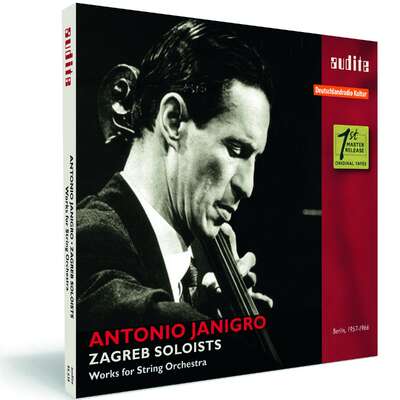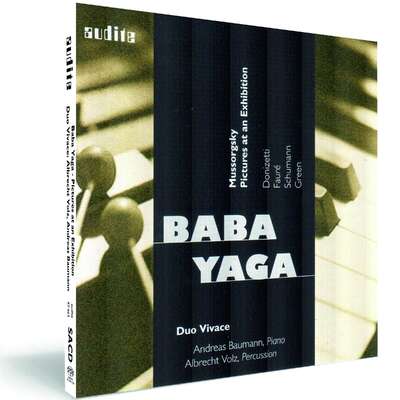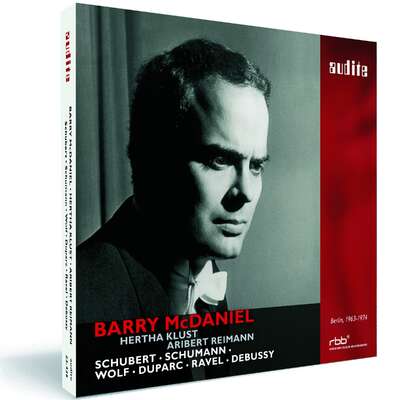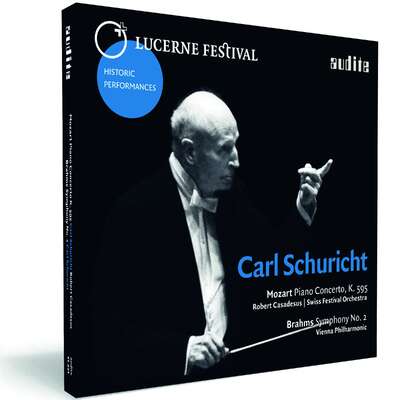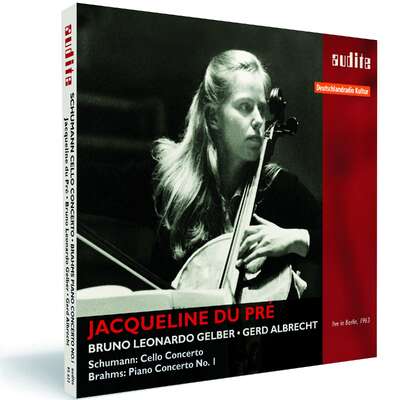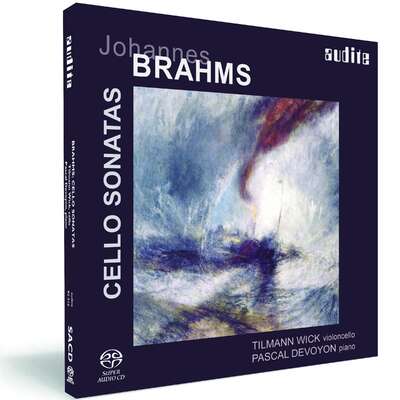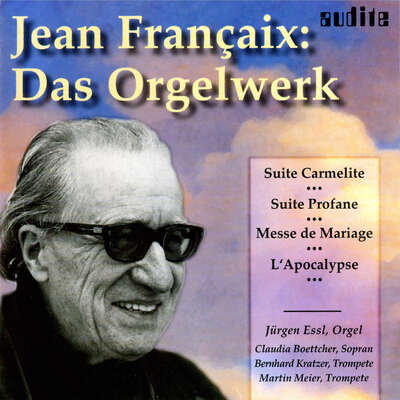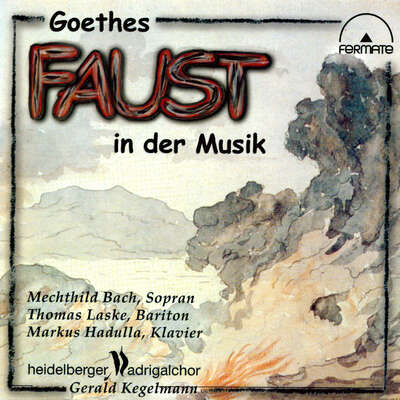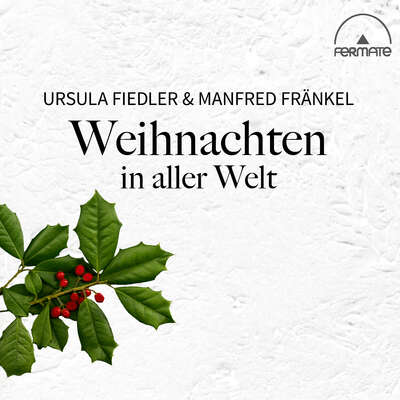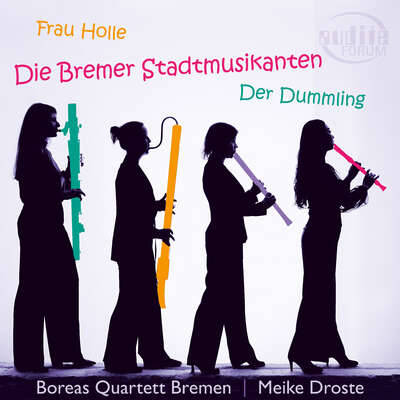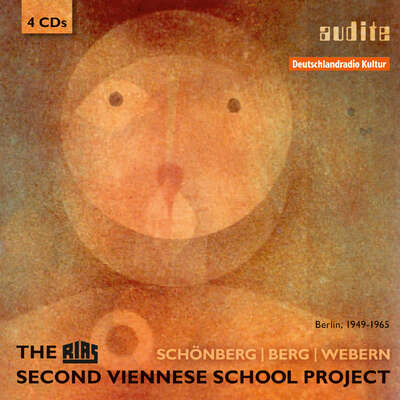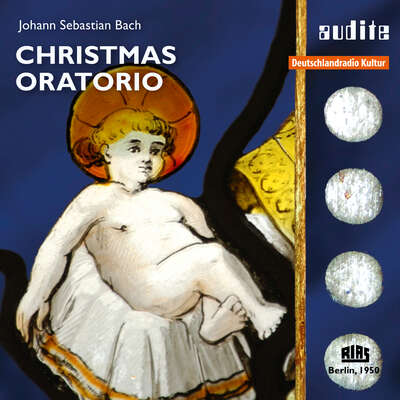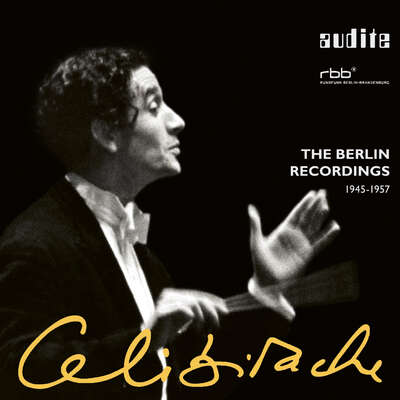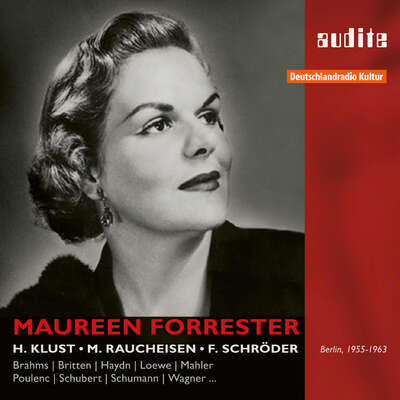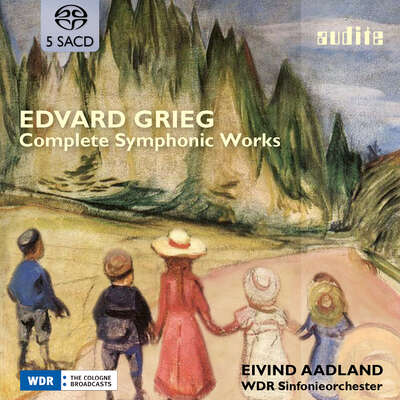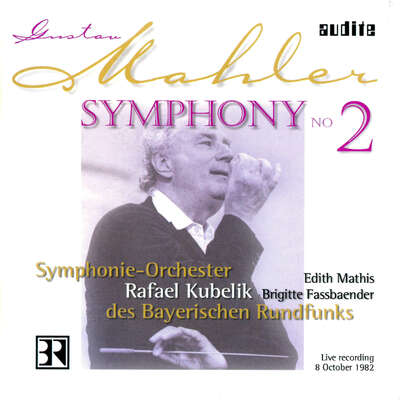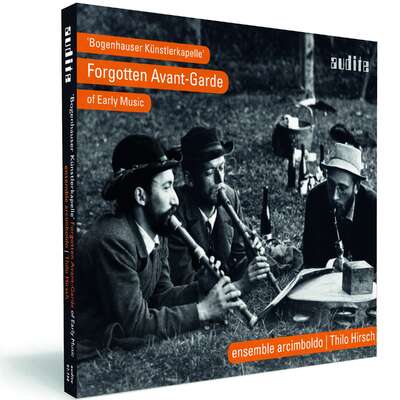
The grace and natural charm of her iridescent, silvery soprano voice was inescapable: Edith Mathis shaped the Mozart sound of her time. But her performances of the Bach passions, Haydn oratorios, as Ännchen in Weber’s Der Freischütz or as Sophie in Strauss’ Der Rosenkavalier were met with equal enthusiasm. She also set the benchmark as a song recitalist, including in the summer of 1975 in her home city of Lucerne.more
"Der erste Eindruck, der sich einstellt, ist Staunen – Staunen über den Glanz der Stimme wie über die Perfektion des Singens. [...] exzellent begleitet von Karl Engel, der diesem Liederabend am Klavier seinen Stempel aufzuprägen weiß. Ein Juwel!" (Opernwelt)
Details
|
Edith Mathis sings Mozart, Bartók, Brahms, Schumann and Strauss: Selected Lieder
LUCERNE FESTIVAL Historic Performances, Vol. 14 |
|
| article number: | 95.647 |
|---|---|
| EAN barcode: | 4022143956477 |
| price group: | BCB |
| release date: | 6. September 2019 |
| total time: | 78 min. |
Bonus Material
Informationen
Edith Mathis, who celebrated her 80th birthday last year, is one of Lucerne's most famous "daughters". The 1960s saw her firmly establish herself on the international opera stage. She enthused audiences in New York and London, in Munich, Vienna and Paris, at Glyndebourne and Salzburg, working alongside all major conductors of her time, from Karl Böhm to Herbert von Karajan. The grace and natural charm of her iridescent, silvery soprano voice was inescapable. Mozartian roles in particular, such as Cherubino, Susanna and Pamina, found their ideal representation in Edith Mathis: she shaped the Mozart sound of her time. But her performances of the Bach passions, Haydn oratorios, as Ännchen in Weber's Der Freischütz or as Sophie in Strauss' Der Rosenkavalier were met with equal enthusiasm. She also set the benchmark as a song recitalist, including in the summer of 1975 in her home city of Lucerne.
Reviews
Fanfare | March 2020 | Raymond Beegle | March 1, 2020
Swiss-born Edith Mathis enjoyed a long and distinguished career singing lyric operatic roles, and there are a few recordings of Mozart and HaydnMehr lesen
As the dramatic scope of the art song is wider and more varied than the oratorio, and as there is no conductor to be the temperamental catalyst, Edith Mathis’s artistic power fades somewhat when matters are left in her own hands, and the hands of her accompanist, in this case, the Swiss born Karl Engel. Pitch, tone, and rhythm all dutifully appear in their proper places, in their proper roles, but they seem to have fulfilled their duties at this point without delivering a compelling attitude or atmosphere to enchant the listener. This is a particularly significant drawback as the repertoire, aside from Bartók’s jangling set of folksongs, is common fare, and one recalls too easily a host of great artists who have sung Das Veilchen, or Widmung, and made deeper impressions on the mind and heart than these pristine and proper readings given at Lucerne in 1975.
Preis der Deutschen Schallplattenkritik | Bestenliste 1-2020 | Stephan Mösch | February 14, 2020 | source: https://www.scha... Klassisches Lied und Vokalrecital
Anmut – dieser Begriff kommt einem sofort in den Sinn, wenn man den historischen Live-Mitschnitt eines Liederabends von Edith Mathis hört. AnmutMehr lesen
Classica – le meilleur de la musique classique & de la hi-fi | Numéro 219 - Février 2020 | Olivier Brunei | February 1, 2020
Beau témoignage d'une artiste peut-être sous-évaluée par l'abondance de la concurrence, mais·dont on peut mesurer a posteriori les grandes qualités.Mehr lesen
www.musicweb-international.com | February 2020 | Göran Forsling | February 1, 2020 | source: http://www.music...
Swiss lyric soprano Edith Mathis was for several decades one of the foremost in her Fach and was granted so long a career thanks to her intelligentMehr lesen
Recorded live implies that there are occasional distractions in the shape of audience noises, but those are limited to some murmuring between the songs and enthusiastic applause between the sections. Yes, one exception from the general rule of audience behaviour occurs after the first of the five Richard Strauss songs, Schlechtes Wetter, where there is an extra brief round of applause, at a guess to apostrophize Karl Engel’s elegant final flourish of the postlude. Otherwise the recording is well-balanced and clean and no-one should avoid this issue for the sake of the sound – it is fully comparable to studio efforts of the same period.
Well versed in the Mozart repertoire she has the ideal voice also for his songs, and even before she has started singing we are lured into the Mozartean world through Karl Engel’s delicate piano introduction to Das Veilchen. All Ms Mathis’s hallmarks are here: the beautiful youthful tone, fresh as dew, the lightness of touch, the self-evident building of the phrases and the unfussy interpretations – there is no exaggerated word-painting or over-emphasis. Her legato is seamless and there is no lack of temperament – just listen to Dans un bois solitaire and Der Zauberer. A handful of Mozart songs is a perfect concert opener which immediately sets an agreeable atmosphere.
Bartok’s Dorfszenen, built on Slovak folksongs, is certainly not the avant-garde composer, but rather the musicologist, who spent so much time in his youth to collect and record the music of the people in his native Hungary as well as the surrounding regions. There are some harmonic twists and rhythmically there are challenges, not least in the concluding Burschentanz, wild and burlesque. On the other hand Wiegenlied is so sensitive and delicious, and the whole suite is a gem that should be heard more frequently. Bartok may not be home-ground for Edith Mathis but she certainly has the measure for his music.
Brahms’s charming 42 Deutsche Volkslieder are natural companions to Bartok and the songs are just as light and fresh as the singing. She had recorded all 42 with Peter Schreier and, as here, Karl Engel at the piano, so was well inside these pearls.
After the interval she returned with no less than nine Schumann songs. Schumann seems to have been a great favourite for her, and the DG-box mentioned above contains a lot of his songs. The well-known Widmung and Der Nussbaum are deliciously nuanced, but the whole section is wonderfully interpreted, up to the concluding Hauptmanns Weib, not one of the most performed of Schumann’s songs but the racy text, built on a poem by Robert Burns, is sung here with great intensity. The quintet of Strauss songs is also memorably interpreted and is rounded off with a delicious Hat gesagt – bleibt’s nicht dabei.
The well-deserved applause is rewarded with Hugo Wolf’s endearing Auch kleine Dinge können uns entzücken from Italienisches Liederbuch, a perfect encore which presents Edith Mathis at her very best.
From the above, readers must in all likelihood draw the conclusion that I liked the disc. That’s correct. And I don’t begrudge anyone to get the same experience.
Scherzo | 21.01.2020 | Rafael Banús Irusta | January 21, 2020
En suma, un admirable retrato de una cantante modélica.Mehr lesen
American Record Guide | January / February 2020 | Krishan Oberoi | January 1, 2020
Swiss soprano Edith Mathis had such a natural, intuitive command of the lieder genre that her name deserves to be remembered with the same reverenceMehr lesen
The program includes Mozart, Bartok, Brahms, Schumann, Strauss, and Wolf. Mathis was perhaps most famous for her Mozart performances, and this recital demonstrates why. She brings uncommon nuance to Mozart’s German lieder and exquisite artistry to his French lieder. The rest of the program is just as effective. Her performances of Bartok’s songs are nothing short of revelatory; she approaches them with a clean, refined touch unlike so many modern performances, which tend to overdramatize them. And even the well worn Brahms and Schumann lieder are worth hearing again in her unique interpretation.
With historical performances, the quality of recorded sound is always a concern. While the ambient noise and hiss here are more pronounced than modern recordings, such concerns are immediately forgotten once the music begins. Mathis had a resonant instrument, and it is captured here in compelling detail. The voice is supple in the middle register, and bright but not strident in the upper register. She had a wonderful command of dynamics, and is able to sing softly (which she does often) without losing support. Quiet singing in the upper register is controlled but not restricted, and the vibrato is even all through. This is truly a voice worth preserving and worth hearing in its prime. Karl Engel accompanies, and the full range of the piano is well balanced, without the airy quality that so often characterizes historic piano recordings.
Mathis, who is still alive in Switzerland, seems to have turned her attention primarily to teaching in the 1980s. One certainly hopes that she can impart some of her profound knowledge of lieder performance to her students.
Diapason | N° 686 - Janvier 2020 | Jean-Philippe Grosperrin | January 1, 2020 La rigueur et la grâce
Témoignage inespéré, cette captation d'un concert de 1975 fait entendre une Edith Mathis et un Karl Engel au sommet de leur art, et invite àMehr lesen
Aubaine que la publication, d'après les bandes radio, d'un récital du 3 septembre 1975 à Lucerne, dans ces années où Edith Mathis gravait pour DG d'éminents albums de lieder (Mozart, Wolf) et l'intégrale inégalée des Volkslieder de Brahms (1974) avec Peter Schreier et déjà Karl Engel au piano. La voix est alors exceptionnelle, qui possède à la fois la fraîcheur, l'éclat différencié et cette fermeté charnelle dans le médium et le bas du registre – elle avait chanté pour Böhm aussi bien Chérubin que Sophie du Rosenkavalier. Mais la merveille, c'est ce phrasé d'une netteté rare, maître absolu de l'intonation, de la dynamique du son (très sensible en live), mais dont la pureté stylistique, se refusant à monter en épingle l'intention expressive, s'accompagne d'un à-propos parfait de la caractérisation. Mozart et Strauss en sont l'exemple. Abendempfindung ose sans fléchir la simplicité d'un sourire grave. Das Veilchen, coloré, diversifié, pensé, garde intacte l'émotion naïve du personnage de Goethe. Dans un bois solitaire est d'un tact dramaturgique qui ne surjoue pas le rococo, tandis que l’esprit qui anime Der Zauberer, pétillant mais non moins subtil, n'a pas d'équivalent ailleurs.
Variés, les Strauss sont autant de remèdes à la tentation du seul hédonisme. Die Nacht n'est pas exhalaison planante, mais parcours, exactement, avec ses zones, ses ombres. Le comique de Hat gesagt est d'une pointe fantastique quand Schlechtes Wetter, en plein dans les équivoques de Heine, subjugue aussi par·sa plasticité (le dernier vers !).
Délectation toujours avec l'assortiment des Myrthen de Schumann. L'union de la candeur et de l'érotisme·s‘opère dans un Nussbaum supérieurement conduit, révé, mais plus généralement une qualité charnelle de mêlancolie magnifie Suleika, les lieder virginaux (les deux Lied der Braut, encore plus beaux qu'en studio avec Christophe Eschenbach) ou la conduite de Was will die einsame Träne. Et quel ascendant dans Jemand ou lm Westen !
De Brahms à Bartok
Régal aussi, de bout en bout, les doigts et l'imagination d'un Karl Engel dépouillé, impérieux, ironique, allusif, dans l'élan comme dan, la stase. Son concours est décisif dans la performance des Scènes villageoises de Bartok, qui valent à elles seules l'acquisition du disque. Comme dans les cinq Volkslieder de Brahms, aussi décantés (In stiller Nacht !) que vivants, Edith Mathis sait que le ton populaire est aussi fait d'enigme, à bonne distance du lyrisme romantique : la Berceuse de Bartok n'est pas maternelle comme avec lrmgard Seefried mais déploie un mystère insondable dans un chant d'une précision implacable (l'euphorie du chant nuptial, la danse finale). Le bis de Wolf (Auch kleine Dinge) célèbre le délice que recèlent les « petites choses », mais voilà bien un tout grand témoignage de cette artiste modeste et immense, qui souriait à bon escient, et dont on n'a pas fini de mesurer la valeur du legs.
Luzerner Zeitung
| 12.12.2019 | Fritz Schaub | December 12, 2019 | source: https://www.luze...
Neue historische Aufnahme bewahrt die Gesangskunst von Edith Mathis für die Zukunft
Historische Aufnahmen lassen den Gesang des Luzerner Opernstars Edith Mathis wieder aufleben
Nach der gross angelegten Anthologie mit Aufnahmen des internationalMehr lesen
Opernwelt | Dezember 2019 | Uwe Schweikert | December 1, 2019
Anmut und Innerlichkeit
Mozart, Bartók, Brahms, Schumann, Strauss, Wolf: Der Mitschnitt eines Luzerner Liederabends aus dem Jahr 1975 präsentiert Edith Mathis im Zenit ihrer Kunst
Der erste Eindruck, der sich einstellt, ist Staunen – Staunen über den Glanz der Stimme wie über die Perfektion des Singens. [...] exzellent begleitet von Karl Engel, der diesem Liederabend am Klavier seinen Stempel aufzuprägen weiß. Ein Juwel!Mehr lesen
www.ResMusica.com | Le 7 novembre 2019 | Pierre Degott | November 7, 2019 | source: https://www.resm... Edith Mathis à Lucerne, simple et naturelle
Dans un programme taillé sur mesure, la soprano suisse impose sa personnalité. Sans fard et sans artifice, Edith Mathis fait triompher le naturel et de la simplicité.Mehr lesen
www.artalinna.com | 3 NOVEMBER 2019 | Jean-Charles Hoffelé | November 3, 2019 | source: http://www.artal... La voix pure
Cette voix fraîche comme une source aimait la veine populaire, il faut entendre comme elle fait danser ou rêver les sauvages Scènes de village de Bartók et quel petit orchestre de campagne lui invente Karl Engel. Les Brahms sont délicieux tout comme les neuf Lieder tirés des Myrthen de Schumann, musiques de paysages et d’émotions où elle modèle les sentiments d’une inflexion, comme si elle avait un regard dans la voix.[...] Quelle artiste !Mehr lesen
forumopera.com - Le magazine du monde lyrique | 03 Octobre 2019 | Laurent Bury | October 3, 2019 | source: https://www.foru... Selected Lieder
Concluons avec ce qui ouvrait le récital, et où Edith Mathis reste une référence intemporelle : les lieder de Mozart, qui lui vont comme un gant et qui semblent avoir été écrits pour elle.Mehr lesen
Audiophile Audition | Oct 2, 2019 | Gary Lemco | October 2, 2019 | source: https://www.auda... Edith Mathis at the Lucerne Festival – Audite
Mathis possesses a strong and vibrant vocal instrument, ideal for the Austrian and German repertory, though Mathis has ventured into the French world of Berlioz and Faure. The present Lucerne lieder recital (3 September 1975) enjoys the piano accompaniment of Swiss veteran pianist Karl Engel.Mehr lesen
www.opusklassiek.nl | oktober 2019 | Aart van der Wal | October 1, 2019 | source: https://www.opus...
Maar de hoofdzaak is natuurlijk dat Mathis ook op het gebied van de liedkunst voor absolute juwelen zorgt. Ze heeft er niet alleen de ideale stem voor, maar ook brengt ze haar verbeeldingskracht mee die deze liederen het vereiste expressieve cachet meegeven. Met Karl Engel, een van de meest vooraanstaande pianisten in het liedrepertoire, had ze het niet beter kunnen treffen.Mehr lesen
Crescendo | Jg. 22 Nr. 6_2019 (Oktober-November 2019) | CK | October 1, 2019 Silberglänzende Stimme: Edith Mathis
Begleitet von dem Pianisten Karl Engel, interpretiert sie mit silbriger Zartheit Werke von Mozart bis Strauss und Bartók. [...] Ungekünstelt, farbenreich und ausdrucksvoll interpretiertMehr lesen
http://operalounge.de
| 01.10.2019 | Ingrid Wanja | October 1, 2019 | source: http://operaloun...
Edith Mathis mit einem Live-Liederabend bei audite
Maßstäbe setzen
In ihrer Geburtsstadt Luzern beim renommierten Musik Festival gab Edith Mathis im Jahr 1975 einen Liederabend mit Werken von Mozart, Bartok, Brahms,Mehr lesen
Zu den Mozart-Liedern passen der silbrige Schimmer des Soprans, die leichte Emission der Stimme, der mädchenhafte Gestus des Singens und natürlich zum Liedgesang generell die gute Diktion. Die feine Melancholie in der Stimme, die Reinheit und Klarheit sprechen in „Als Luise die Briefe ihres ungetreuen Liebhabers verbrannte“ direkt zum Herzen des Hörers, und bei „Abendempfindung“ entzückt die Schwerelosigkeit des Gesangs. Aber auch Humor kann in dem wandlungsfähigen Sopran sich ausdrücken, wie „Der Zauberer“ beweist.
Bei den derberen Bartok-Liedern wird die Balance zwischen Kunst- und Volkslied gewahrt, ist das Wiegenlied von wunderschöner Innigkeit, beweist die Sängerin in „Burschentanz“ aber auch, dass sie vokal beherzt zupacken kann.
Besonders gefallen können die Deutschen Volkslieder von Brahms, mit einem schönen Aufblühen des Soprans in „In stiller Nacht“, feinen Pianissimi und der Gewissheit des Hörers, dass die Sängerin empfindet, was sie singt. Von raffinierter Schlichtheit ist „Da drunten im Tale“ mit im Untergrund loderndem Feuer, am Schluss nachdenklich dunkel. Der Stimmungswechsel in „Feinsliebchen“ ist von bezwingender Unmittelbarkeit.
Aus „Mythen“ von Schumann stammt „Widmung“, der Mathis einen schönen Jubelton, wechselnd mit Innigkeit verleiht, zartes Naturerleben lässt sie den Hörer in „Der Nussbaum“ nachempfinden, eine selbstbewusste Braut spricht aus dem ersten Brautlied, tränenverhangen und in einem schönen Pianissimo verhauchend zeigt sich „Was will die einsame Träne“. „Hauptmanns Weib“ beweist, dass die Mathis auch Forte singen konnte, die Stimme bei aller lyrischen Anlage viel Substanz besaß.
Das gilt auch für Strauss‘ „Schlechtes Wetter“, ehe der Sopran in „Die Nacht“ ein duftiges Gebilde zaubert, schillernde Farbigkeit für „Ach, Lieb“ hat und schließlich ganz eins ist mit Wolfs Kleinen Dingen. Karl Engel ist der ideale Begleiter, der die Sängerin auf akustischen Händen trägt (audite 95.647).
Frankfurter Allgemeine Zeitung | Montag, 30. September 2019 | Nr. 227 | jbm | September 30, 2019
Silberglanz der Höhe, Grazie, leichteste Beweglichkeit – an all dasMehr lesen
De Gelderlander | 25-09-19 | Maarten-Jan Dongelmans | September 25, 2019 | source: https://www.geld... Zelfs de kuchjes van Edith Mathis zijn nog om door een ringetje te halen
Inderdaad, ‘ook kleine dingen kunnen ons bekoren’, zeker wanneer Edith Mathis dergelijke parels uit de liedkunst voordraagt. Een aanrader!Mehr lesen
www.pizzicato.lu
| 15/09/2019 | Uwe Krusch | September 15, 2019 | source: https://www.pizz...
Notizbuch eines Rezensenten – CD-Kurzrezensionen von Uwe Krusch (Folge 244)
Stile auslotender Liederabend
Ihr Repertoire entwickelte die schweizerisch solide studierte, zuverlässige, divenfreie Edith Mathis von den lyrischen Partien Mozarts bisMehr lesen
